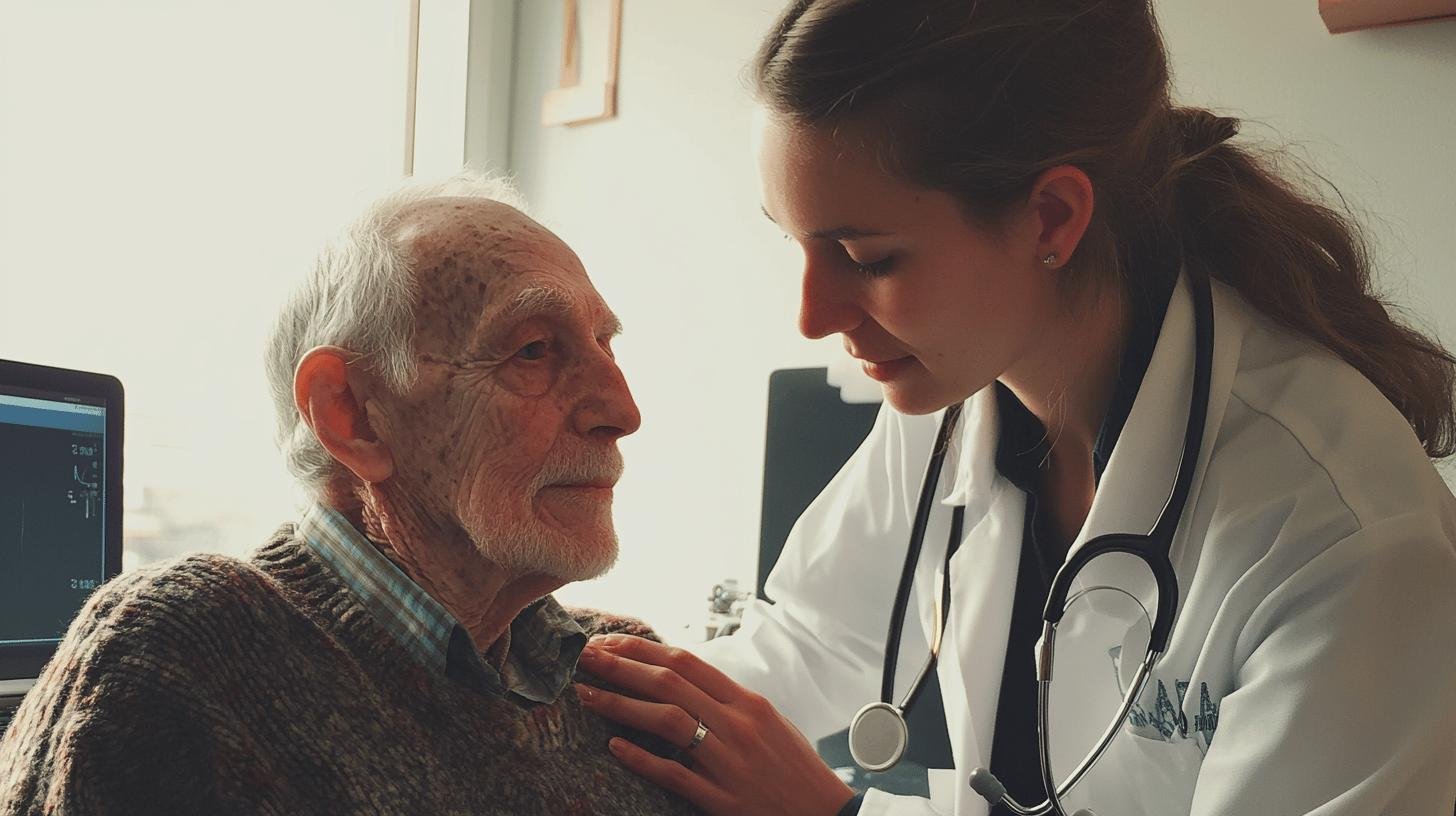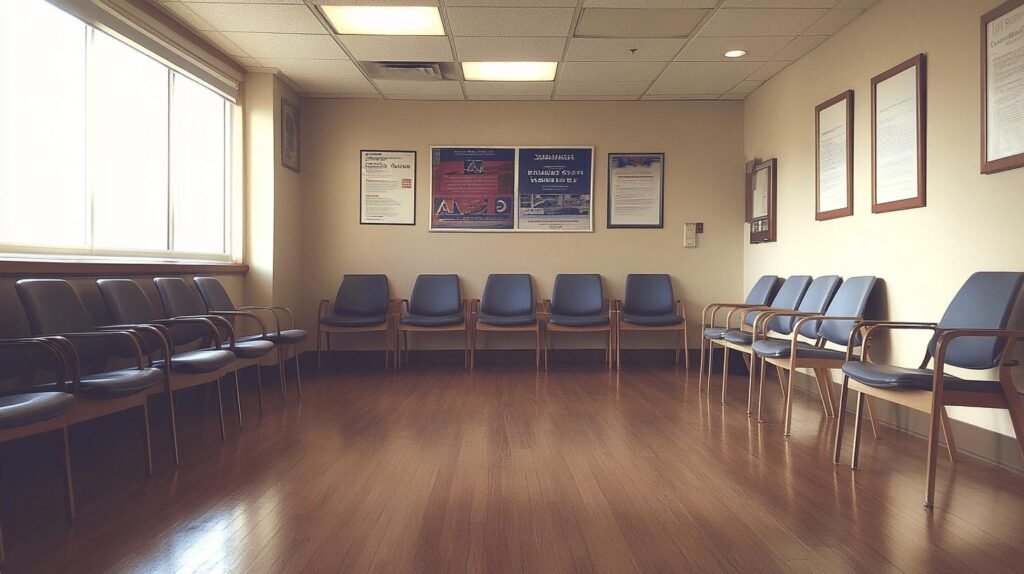TL;DR:
- Primary Healthcare Services: First point of contact; essential for overall health.
- Key Aspects:
- Integration: Seamless healthcare experience.
- Accessibility: Easy access regardless of location/financials.
- Continuity: Ongoing care and trust with providers.
- Comprehensive Care: Addresses acute and chronic conditions.
- Patient-Centered: Focus on individual needs.
- Common Services:
- Routine check-ups: Early health issue detection.
- Vaccinations: Protection against diseases.
- Health screenings: Early condition identification.
- Chronic disease management: Ongoing care for long-term health.
- Maternal/Child Health: Monitoring and immunizations.
- Benefits: Improved outcomes, better quality of life, cost-effectiveness, equitable access.
- Providers: Family physicians, internists, pediatricians, nurse practitioners.
Do you ever wonder what your doctor does during a “routine check-up”? You’re not alone! Primary healthcare services are the backbone of staying healthy, yet they often seem like a mystery to many. These services are your first stop in the healthcare maze, ensuring you get the care you need when needed. From regular check-ups to managing chronic diseases, primary healthcare covers it all. Let’s dive into what makes these services crucial for you and your family’s well-being.
Understanding Primary Healthcare Services
Primary healthcare services are essential health services that serve as the first point of contact in the healthcare system. These services are vital for maintaining overall health and well-being. Simply put, primary care delivers integrated, accessible healthcare by clinicians responsible for most personal health needs. They build long-term partnerships with patients and work within family and community.
Why is primary care so crucial as the initial point of contact? Because it ensures that you get the proper care at the right time. Think of it as your healthcare home base. Your primary care provider knows your health history and helps you navigate the maze of medical services. Whether diagnosing an illness, managing chronic conditions, or providing preventive care, they’re your go-to person.
Here are the key aspects of primary healthcare services:
- Integration: Combining different healthcare services for a seamless experience.
- Accessibility: Easy access to care regardless of your location or financial situation.
- Continuity: Ongoing care over time, building trust with your provider.
- Comprehensive care: Addressing various health issues, from acute illnesses to chronic diseases.
- Patient-centred approach: Focusing on individual patient needs and preferences.
Primary healthcare services are the foundation of a healthy community, ensuring everyone has access to quality care when needed.
Common Services Provided in Primary Healthcare

Routine check-ups are the core of primary healthcare services. These visits help catch potential health issues early. During these visits, your healthcare provider checks your vital signs, reviews your medical history, and addresses any concerns. Regular check-ups maintain overall health and spot any red flags before they become serious problems.
Vaccinations and health screenings are also critical. Vaccinations protect you from infectious diseases, while screenings catch conditions like diabetes, high blood pressure, and certain cancers early on. These preventive measures serve as your medical safety net.
Primary care providers (PCPs) are your go-to experts for managing common illnesses and chronic diseases. Whether treating a sore throat or managing long-term conditions like asthma or diabetes, PCPs cover many health issues. They can prescribe medications, provide lifestyle advice, and refer you to specialists if needed. This comprehensive care ensures all aspects of your health are addressed.
Specialized services like maternal care and child health services are also crucial. Maternal care includes prenatal and postnatal visits, ensuring both mother and baby are healthy. Child health services cover everything from immunizations to growth and development checks. These services lay the foundation for lifelong health.
| Service | Benefit |
|————————-|—————————————————–|
| Routine check-ups | Early detection of potential health issues |
| Vaccinations | Protection against infectious diseases |
| Health screenings | Early identification of conditions like diabetes |
| Chronic disease management | Comprehensive care for long-term health conditions |
| Maternal care | Health monitoring for mother and baby |
| Child health services | Immunizations and developmental checks |
Primary healthcare services are designed to cover a broad spectrum of needs, ensuring you receive the right care at the right time.
The Role of Primary Care Providers
Primary care providers (PCPs) are your healthcare MVPs. They handle your ongoing healthcare needs and are your first stop for advice, treatments, and referrals. These providers know your health history thoroughly, making them the best resource for managing everyday and complex health issues. Whether dealing with a cold or managing diabetes, they’re your go-to professionals.
Trust is the secret sauce in the patient-provider relationship. When you trust your primary care provider, you’re more likely to follow their advice, attend appointments, and be honest about your health concerns. This trust helps create a robust and ongoing relationship that maximizes the benefits of primary care.
So, who are these healthcare heroes? Here’s a quick rundown of the types of primary care providers:
- Family physicians
- Internists
- Pediatricians
- Nurse practitioners
- Physician assistants
- General practitioners
PCPs are the backbone of the healthcare system, ensuring that patients get the care they need when they need it.
Importance of Primary Healthcare Services

Primary healthcare is the cornerstone of a well-functioning health system. It provides continuous, accessible, patient-centred care, ensuring your healthcare needs are met efficiently and effectively. Having a consistent healthcare provider helps build a long-term relationship that can significantly improve your health outcomes. Plus, you don’t have to jump through hoops to get your needed care.
Early detection and prevention of diseases are huge benefits of primary healthcare. Regular check-ups and screenings can catch health issues before they become serious, reducing the need for more costly and intensive secondary and tertiary care. Imagine the peace of mind knowing that your healthcare provider is always looking out for potential red flags.
Financially, primary healthcare is a lifesaver for individuals and the public health system. Managing conditions early on reduces hospitalizations and the need for expensive treatments. This not only saves money but also relieves the strain on healthcare facilities. Think of it as investing in good health to avoid bigger bills later.
Here are some key benefits of primary healthcare:
- Improved health outcomes: Consistent care helps manage your health conditions better.
- Enhanced quality of life: Regular check-ups and preventive measures keep you healthier.
- Increased life expectancy: Early detection and management of diseases can extend your lifespan.
- Cost-effectiveness: Reduces the need for expensive treatments by catching issues early.
- Equitable access to healthcare: Ensures everyone gets the care they need, regardless of their situation.
Primary healthcare is essential for everyone to maintain a healthy and balanced life.
Integrated and Comprehensive Primary Healthcare
Integrated primary care is like having a well-oiled machine working just for you. It’s a coordinated approach that ensures all your healthcare needs are met smoothly. This involves working together with different healthcare professionals—doctors, nurses, and specialists. Ensuring everyone’s on the same page gives you a seamless experience that takes care of your health from all angles.
Comprehensive primary care means no health issue is too big or too small. Your primary care provider handles it all, whether it’s a routine check-up or chronic disease management. This approach is crucial because it addresses a vast health needs, ensuring nothing falls through the cracks. It’s like having an all-in-one healthcare solution that keeps you covered no matter what.
Here are the key components of integrated primary care:
- Coordination among healthcare professionals: Ensures you get the best care from a team of experts.
- Continuity of care: Builds a long-term relationship with your provider so they know your health history thoroughly.
- Patient-centred approach: Focuses on your individual needs and preferences.
- Health promotion and education: Keeps you informed and proactive about your health.
- Collaboration with community services: Connects you with additional resources and support systems.
With integrated and comprehensive primary healthcare, you’re not just getting treatment—you’re getting a whole team dedicated to your well-being.
Final Words
Primary healthcare services are crucial for our overall well-being. We kicked things off by defining what primary healthcare services are and their importance as the first point of contact in the healthcare system.
Then, we dove into the common services provided, from routine check-ups to managing chronic diseases.
We discussed the key role of primary care providers and concluded with the benefits of continuous, accessible care.
By understanding what are primary healthcare services, you can make more informed choices and take better care of your health.
FAQ
Primary Health Care Examples
A: Examples of primary health care include routine check-ups, vaccinations, health screenings, and treatment of common illnesses.
What is Primary Health Care PDF
A: Primary health care PDFs usually contain detailed information about services, principles, and benefits of primary health care. You can find them online on health organization websites.
Primary Health Care Definition
A: Primary health care provides integrated, accessible health services by clinicians accountable for a broad range of health needs, building enduring relationships with patients within their community.
14 Components of Primary Health Care
A: The 14 components include education, nutrition, water and sanitation, maternal and child health, immunization, disease treatment, drug provision, social services, mental health, health promotion, occupational health, traditional medicine, telehealth, and emergency services.
Principles of Primary Health Care
A: The core principles are:
- Accessibility
- Public participation
- Health promotion
- Appropriate technology
- Intersectoral cooperation
5 Objectives of Primary Health Care
A: The five objectives are:
- Universal access
- Reducing health disparities
- Organizing health services around people’s needs
- Integrating health into all sectors
- Collaborative policy framework
Types of Primary Health Care
A: Types include:
- Preventive care
- Curative care
- Rehabilitative care
- Palliative care
Elements of Primary Health Care
A: Elements include accessibility, public participation, health promotion, intersectoral coordination, and appropriate technology.
What is an Example of Primary Care in Health Care?
A: An example is visiting your family doctor for a regular wellness check-up.
Which of the Following are Primary Health Care Services?
A: Services include routine physicals, immunizations, health education, and management of chronic diseases.
What is the Primary Healthcare Provider?
A: A primary healthcare provider is a clinician offering first-contact and continuous care, like a family doctor, nurse practitioner, or physician assistant.
What is the Definition of a Primary Health Care Need?
A: It’s a need addressed through first-contact, accessible, and integrated health services, often preventive and basic care.

